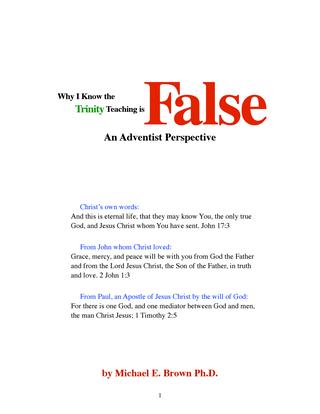Read Part 2.
What is more important: truth or piety, Christian doctrine or ethics?
- At first.
- The question may seem as absurd as asking what’s more important: the right eye or the left eye?Right or left lung?However.
- Unlike these examples.
- Where it is possible to survive without one of the members of the body.
- It is simply impossible to survive in the Christian life without a joint dedication to truth and piety.
- Christian doctrine and ethics.
John Calvin, one of the great theologians and pastors of the Protestant Reformation, once said that Christian doctrine and piety are as inseparable as the light and warmth of the sun. Different, indeed; separable, never.
Unfortunately, throughout the history of the Church and even in our time (just to see facebook), it seems that many want to see with one eye, breathe with a breath and walk amputated by Christian life, using one thing or another: doctrine or piety. Although possible, is this desirable? Not for a moment. Here are some reasons:
Paul, in his well-known words to Timothy, described the Bible as follows: “All Scripture is inspired by God and useful in teaching, rebuking, correcting, and instructing righteousness, so that the man of God may be fit and fully prepared for all good work (2 Timothy 3:16-17)
Much has been said and written about these verses about the inspiration of the Holy Scriptures, and rightly so!Weren’t they totally inspired, foolproof and foolproof? I mean, totally true and trustworthy?They could never be useful for the purposes for which they were divinely revealed and recorded by the apostles and prophets.
However, when these verses are quoted, studied, and preached, less is said about the purpose of scripture inspiration, although Paul devotes more words to sufficiency than to the inspiration of the Bible in this passage and in its immediate context. , What’s the point? Not only for salvation through faith in Christ Jesus (2 Timothy 3:15), but for growth in this faith, culminating in justice and good works. (2 Timothy 3. 16b-17) In short, the Bible is the account of truth for mercy; and piety is derived from the truth of the scriptures.
When the disciples were put into service on the eve of their ascension, Jesus told them: “Go therefore and make disciples of all nations, baptize them in the name of the Father and of the Son and of the Holy Spirit, teaching them to obey everything. this, I commanded. ? (Mt 28,19-20a) Although demanding, Jesus’ mission in the Church could not be clearer: to be my disciples, to live as disciples and to make more disciples, preaching the gospel and baptizing those who they repent of their sins and believe in the Lord Jesus, the Church must teach these disciples to obey everything that Jesus commanded them.
Keep in mind: the Church was formed by the Lord Jesus to be the faithful guardian and transmitter of gospel truth to nations in order to recruit new disciples for the cause of the Lord’s Kingdom; However, she must not only keep this truth and pass it on to others (“teach them” everything I have commanded them?), but she must also make sure that Christ’s disciples obey this truth (teach them to obey all that I commanded?). Once again, the Church exists both in terms of the transmission of truth and the promotion of piety.
In his instructions to his young disciple, Timothy, the Apostle Paul urged him to confront false doctrines, clinging to sound doctrine, and asking others to do the same (1Tim 1. 3. 11; 4. 1. 6; 6. 3-4). However, Paul carefully instructed him to pay attention not only to sound doctrine, but to his own life (1Tim 4. 16a). Certainly so that he himself can be sure to direct his listeners and himself towards salvation in Christ. (1 Tim 4. 16b) But how? He himself serves as an example to the faithful, both word and procedure (1 Tim 4. 12).
Therefore, as a devotee of pastoral care, Toteo must adhere to truth and piety (literally, to “teaching according to piety”; 1 Tim 6:3). Otherwise, it would be a stumbling block for him and the other members, but in doing so, it would be above all a stimulus, but not exclusively, for those, like him, called to pastoral vocation. (1 Timothy 3: 1-7. ) Such men could not only be men of truth or mercy, but also of truth and mercy, for what is at stake is the very integrity of the gospel message (1 Timothy 3. 14-15). )
All of the above points point to this last point, at the center of the gospel is the one described as truth and life, and the way for both (Jn 14:6). The same Jesus who came to deliver us by the truth is the one who wants to sanctify us with the truth recorded in his word (Jn 8:32; 17:17). Therefore, in Christ truth and piety find their marriage perfect.
What has God united in the scriptures, in the Church, in the pastoral vocation and in the Lord Jesus himself, no one separates. Therefore, let us see, breathe and walk in the Christian life like this: in truth and in piety.

